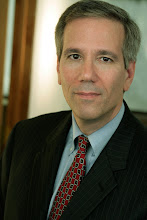Lady Nancy Astor: Winston, if you were my husband, I'd poison your tea.
Winston Churchill:
Having a defibrillator at home does not protect heart attack survivors against a cardiac arrest any better than having someone at home with good cardiopulmonary resuscitation training.
Dr. Gust Bardy of the Seattle Institute of Cardiac Research and colleagues studied 7,001 people at moderate risk of sudden cardiac arrest, each of whom had a spouse or home companion willing and able to perform CPR and use an AED. He presented the results of the study of automated external defibrillators or AEDs used in the home at a meeting of the
In public places such as airports, AEDs have helped people survive sudden cardiac arrest, when the heart stops pumping blood. Without immediate treatment with a defibrillator or a bystander who knows CPR, most die within minutes.
As about 80 percent of sudden cardiac arrests occur at home, researchers wanted to see if putting defibrillators in the home could save lives.
One group was told to call an ambulance and perform CPR, while the other group was told to use the defibrillator first, then seek emergency help. They were followed for three years.
What a gamble to participate in this study? Will I live because I depended on skill vs. a device? What’s my risk for sudden cardiac arrest anyway? What’s the book in Vegas on my chances of the big bang and then surviving it.
Wait a moment. Wow. How much faith does it take to trust that your spouse knows enough CPR to save you vs. having the AED in your home. Or that she'll even make the attempt at all. Basically, if she fails, it is okay because it was only a clinical trial that didn't work.
Now that’s love. As you lie there on the floor, clutching your chest, you look up with pleading eyes that say save me.
And then she (oh yes, we assume it is a she) remembers all the garbage you didn’t take out, the beer on your breath when you came home at 2 am, the mess your buds made after the Giants won the Super Bowl and a thousand other slings and arrows that outrageous fortune rained down on her because of you.
"There was no mortality benefit," said Dr. Gust Bardy of the Seattle Institute of Cardiac Research, whose study was published in the New England Journal of Medicine.
No benefit? Someone still lived.
Out of 123 arrests, just 63 of those were witnessed and a defibrillator was used in just 32 people. The device, which can assess a patient's rhythm, called for a shock to be delivered in just 14 patients, and only four survived long enough to be discharged from the hospital.
Bardy told reporters the rate of cardiac arrests occurring at home was lower than expected, and many occurred when the victim was alone.
And he noted that patients' spouses and companions in the control group had been well educated in how to respond to a heart-stopping event, something that could have improved survival in the group that did not have an AED.
Interestingly, the devices were also used by neighbors who borrowed one of the defibrillators to revive a family member. Two out of 7 of those people survived. Bardy said whenever the devices were used, they worked well.
AEDs for use at home cost $1,200 to $2,000 per unit. AEDs used in the study were made by Philips Medical Systems, a unit of Royal Philips Electronics, which are the only AEDs available without a prescription.
Bardy said most of the devices are purchased by the "worried well," and confessed to personally owning four.

No comments:
Post a Comment